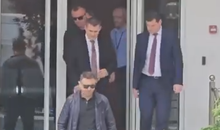
 Flash News
Flash News
Reuters: Rama seeks fourth term in elections dominated by corruption and criminal gangs
Vehicle bursts into flames in Paris Commune
Electoral Crimes/ BKH agents and Police conduct checks in Shkodra
3 associates of Talo Çela arrested in Dubai
Mouse in the owl's claws, Chris LaCivita responds directly to Rama
Durrës, a key mandate for the future majority is at stake
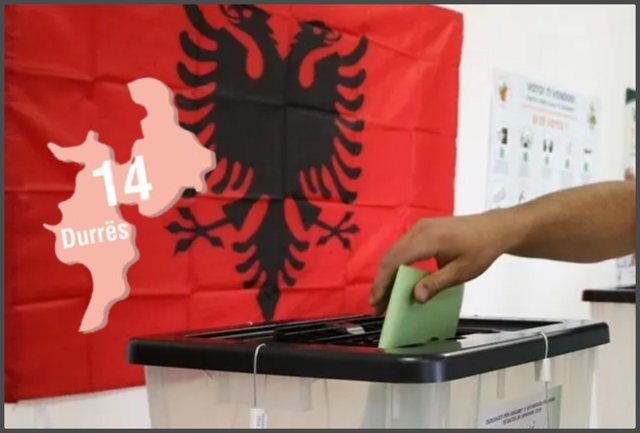
Only 133 votes were needed by the Socialist Movement for Integration party in 2021 to obtain a mandate as an MP, a mandate that passed to the Socialists with a result of 8 to 6. If the SMI had that many more votes, the mandate would have belonged to it and the result of the Durrës district, one of the four largest districts in the country, would have been 7 to 7 and not 8 to 6. And if the SMI were to compete in coalition with the DP in those elections, the result obtained would have been more than enough to achieve a tie. The PD-LSI split in the 2017 and 2021 elections is what gave the Socialists in this district 8 mandates, i.e. 57% of the district's mandates, while their percentage result was 49.7 in 2017 and 50.3 in 2021. In districts with an even number of mandates, this advantage of the Socialists is insufficient to produce a result in mandates, if there are no burned votes.
Durrës is also the region where, together with Tirana, the change of governing majorities was written in 2005 and 2013. In 2005, all the majority confrontations in the region were won by the opposition Democratic Party, while in 2013, the people of Durrës and Krujë drastically increased the votes for the Socialists and their allies, giving them 7 mandates and the government of the time, 5. A change in mood, however slight, of the residents of the Durrës region, which also includes the municipalities of Krujë and Shijak, takes away a mandate from the Socialists and gives it to the opposition. The change required for the Socialists to keep the 8 mandates they have received in the region in the past two elections is considerable and likewise, an 8 to 6 reversal for the opposition seems highly unlikely.
The results of 2009, when Durrës had 13 mandates, gave a simple victory to the Democratic Party and its allies, who received 52% of the vote and 7 mandates. The Socialist Party received 35% of the vote and 5 mandates. The SMI received one mandate with 8%.
In the 2013 elections, the SP received a significant increase of 11 thousand votes and, together with the LSI, reversed the result in terms of mandates from 6 to 7 for the DP to 7 to 6. While in 2017, the Socialists managed to receive 50% of the votes in the district and thus secured eight mandates. The success of 2017, with 73 thousand votes and 12 thousand more than in 2013, it was later revealed, came at least in part thanks to the engagement of some notorious organized crime structures in the elections in favor of the Socialist Party.
What later became known as file 339 began as an investigation by German authorities against a group of drug traffickers and led, as a side effect, to the discovery of electoral crimes. Several excerpts from the wiretap, leaked by the German media Bild, demonstrated how Astrit Avdyli, a man now convicted of international drug trafficking and accused of providing funds and recruiting hitmen, revealed that in 2017 he proposed Ilir Ndraxhi for MP, promising the local socialist leader a result that would surprise even Edi Rama himself. In a second wiretap, Avdyli is heard ordering the director of the public water company to give him a list of the company's employees, under the categorical threat that if they did not vote for the SP, they would be fired.
In fact, one of SPAK's earliest investigations into electoral crime revealed, amid citizen outrage, that many election commissioners had manipulated around 5.5% of the votes in several polling stations in 2017, by voting on behalf of people who were in exile on election day. The laughter was caused by the fact that, when SPAK ordered the arrests, in 2020, three years after the elections, two of the accused commissioners had passed away.
In the 2021 elections, the Socialists not only maintained the result of the 2017 elections, but improved it further by receiving 77 thousand votes or 53%. But similarly, the result this time also seems to have been secured by electoral crime and the involvement of organized crime in the elections.
Jurgis Çyrbja, one of the PS MPs from Durrës, resigned and was arrested, among other things, on charges of electoral corruption, while Rrahman Rraja, another Socialist MP based in the Nikla area near Fushë-Krujë, resigned in 2023 after a video was published online in which his family members were shown beating two citizens with baseball bats, whose crime was that they had complained to the local police about explosions in a quarry, which, although nominally owned by someone else, appeared to be of economic interest to the Rrajas.
One of the leading politicians in Durrës, whom Rama bought from the LSI, Lefter Koka, was arrested a few months after the elections for corruption and is currently serving a sentence.
The allegations of involvement in the election crime are numerous and in fact include not only the majority. One of the opposition candidates today, former prosecutor Arjan Ndoja, was dismissed from the vetting process precisely for “inappropriate contacts” with people suspected of organized crime activities, while former socialist deputy prime minister Arben Ahmetaj once accused Edi Rama of having appointed a coordinator for relations with various criminal groups, an accusation that Rama denies. Ndoja was in a vehicle with Aleksandër Laho, also known as Pëllumb Muharremi or Rrumi i Shijakut, a criminal world figure who is currently on trial for corruption, when fire was opened on their car, killing the driver and wounding Rrumi.
SPAK's fight against organized crime has likely reduced the strength of some criminal groups, but others appear to have remained untouched. Altin Hajri, the person who, according to prosecutorial documents, helped Jurgis Çyrbe in the elections in exchange for police information, remains at large, having been initially declared wanted four years ago.
It is also known that one of the features of organized crime is the ease with which those imprisoned are replaced through promotions within the group or new recruitments, so successive strikes by law enforcement structures are needed and, crucially, the seizure of assets generated by crime is needed to weaken the economic power of these structures. This does not seem to have happened to date.
Under these conditions, what is known is that various organized crime structures have a role in the outcome of the elections in Durrës, which makes it not very valid to speculate on how the votes might be divided.
Durrës Region lies mainly along the Adriatic Sea in central Albania, while the Kruja area is also part of the region, up to the border with Dibër Region. Durrës is Albania's largest port and the main gateway for the country's international trade. The proximity to the port has helped develop the export-oriented garment industry, an industry that has been in decline for years, while Durrës Beach is one of the country's most popular tourist destinations.
Durrës is the area where most of the country's poultry farms are located, an economic activity that has produced several MPs over the past decades.
In the Kruja area, the presence of limestone has developed the cement and raw materials industries for construction, which has caused environmental pollution.
Durrës region has been, along with Tirana, the destination of internal migration over the last three decades, with large suburban areas developed without urban plans, such as the former Kënetë area. The situation seems to have changed in recent years, when Durrës has joined most of the country's regions where the population is declining as a result of emigration.
The 2023 census data shows that the resident population is 227 thousand people, a 14% decrease compared to 2001. In fact, the population decline between the 2011 Census and the 2023 Census is greater than the increase recorded between 2001 and 2011.
About 62% of the population lives in the cities of Durrës, Fushë-Krujë, Manëz, Krujë and Shijak. The urban-rural division in the case of this region does not make much sense because the peripheral areas around the city of Durrës, such as Rrashbulli, with 24 thousand inhabitants, or that of Sukthi with 13 thousand inhabitants, are effectively part of the urban area despite nominally continuing to be known as villages.
MPs Oerd Bylykbashi, Gent Strazimiri and Ilgi Cara have taken their place on the closed list of the Democratic Party, which also includes Artan Luku from the Agrarian Environmentalist Party, who works as a director at a poultry farm owned by party leader Agron Duka, and Manjola Luku, a pharmacist in Manëz.
Former prosecutor Arjan Ndoja, journalist Aulon Kalaja, or MP Andia Ulliri are competing for one or two mandates that the opposition hopes to win outside of the closed lists.
The Socialists are competing with MPs Klodiana Spahiu, Milva Ekonomi, and Aurora Mara on the closed lists alongside writer Loer Kume, who is a dentist by profession, and Skënder Pashaj, a businessman whose main activity is in the fashion industry.
Ilir Ndraxhi is competing from the open lists for the two or three remaining positions, alongside a number of public administration directors such as Ani Dyrmishi, director of health, mortgage and railways, or Dorina Laçi, director of education in Krujë./ BIRN
Latest news

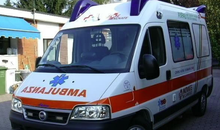
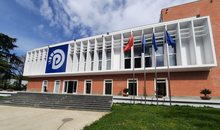
"Freedom works", DP welcomes the US position
2025-05-08 12:48:07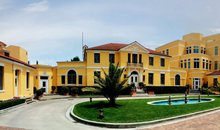
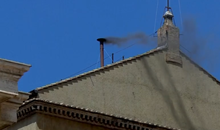
Black smoke rises from the Sistine Chapel, the Vatican still without a Pope
2025-05-08 12:26:18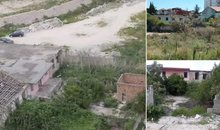



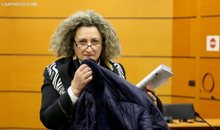
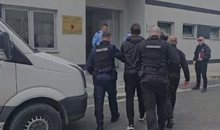
Davide Pecorrelli extradited to Albania
2025-05-08 11:29:04
'May 11, Albania will react', Xhaferri: Electoral criminals will pay
2025-05-08 11:21:46

Gjin Gjoni: Non Grata fell, Rama should get ready to go to McGonigal
2025-05-08 11:01:54
May 8th deadline for immigrants to vote in Greece extended by one day
2025-05-08 10:48:42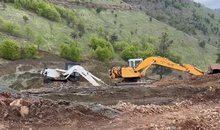
Collapse of massive chrome structure, still no trace of 29-year-old
2025-05-08 10:40:04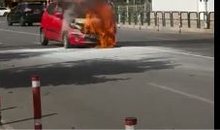
Vehicle bursts into flames in Paris Commune
2025-05-08 10:25:43
He gave land to his father and cousin, Basir Çollaku denounces the SP candidate
2025-05-08 10:16:16


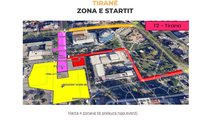
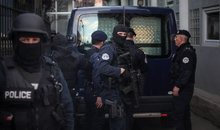
Electoral Crimes/ BKH agents and Police conduct checks in Shkodra
2025-05-08 09:19:13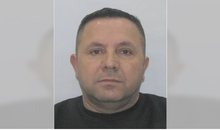
3 associates of Talo Çela arrested in Dubai
2025-05-08 09:02:28
Mouse in the owl's claws, Chris LaCivita responds directly to Rama
2025-05-08 08:45:40
Foreign exchange, how much foreign currencies are sold and bought today
2025-05-08 08:30:38
BIRN: Organized crime, the 'invisible party' of the Durrës elections
2025-05-08 08:26:35
Horoscope, what do the stars have in store for you today?
2025-05-08 08:08:15
Cloudy and rainy, what the weather is expected to be like throughout the day
2025-05-08 07:52:13
Posta e mëngjesit/ Me 2 rreshta: Çfarë pati rëndësi dje në Shqipëri
2025-05-08 07:40:16


Rama attacks Bardhi: Fier cannot be represented by the world's gas
2025-05-07 22:36:22


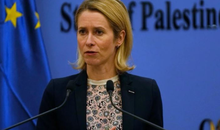
EU calls on Israel to lift humanitarian blockade in Gaza
2025-05-07 21:42:34
"Russia is "asking for a lot"! Vance calls for direct Moscow-Kiev talks
2025-05-07 21:20:16
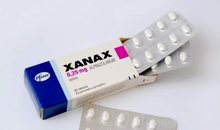
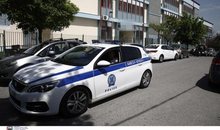
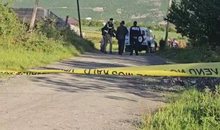


Bank of Albania sets limits on home loans, Sejko: The maximum will be 85%
2025-05-07 20:16:10


EP calls for immediate lifting of measures against Kosovo
2025-05-07 19:39:58



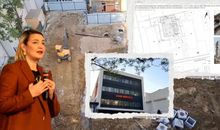

Accident on the Elbasan-Peqin axis, three police officers injured
2025-05-07 18:18:35

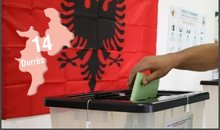
Durrës, a key mandate for the future majority is at stake
2025-05-07 17:34:00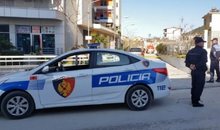


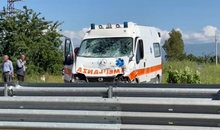
Truck collides with ambulance, police: Nurse and patient's father among injured
2025-05-07 16:51:06
The SP MP and minister "join the DP", support Jorida Tabaku with two fingers up
2025-05-07 16:33:41
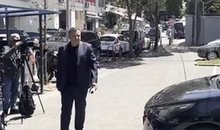

A dose of cocaine was found on him, the candidate for MP in Saranda was arrested
2025-05-07 16:02:52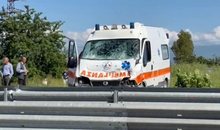
Truck and ambulance collide on the Fier-Lushnjë axis, four injured
2025-05-07 15:51:13

4 ways to avoid spring viruses
2025-05-07 15:28:08
A weapons workshop was found in the north, Kosovo Police arrest one person
2025-05-07 15:13:40
Campaign Scandal: How Students Are Being Misused for Rama's Electoral Calendar
2025-05-07 15:08:07
Do elections affect the exchange rate?
2025-05-07 14:54:54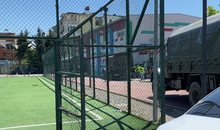
Election materials arrive in Lushnja and Divjaka
2025-05-07 14:40:15
The validity period for identity documents expiring by May 11 is extended
2025-05-07 14:29:25


3 public questions about Irena with 3 surnames
2025-05-07 13:50:35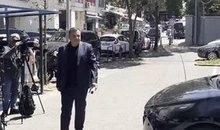
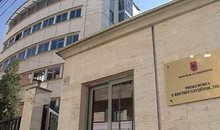
44 reports of electoral crimes/ Tirana, Fier and Dibra lead in irregularities
2025-05-07 13:30:39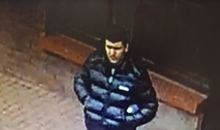
16-year-old Albanian boy goes missing in Northern Ireland
2025-05-07 13:21:25
Loneliness at a young age: Why young people feel more isolated than ever before
2025-05-07 13:13:27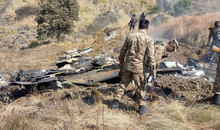
Why did India attack Pakistan with missiles?
2025-05-07 12:56:49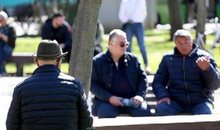

Bebe Rexha confesses the pain that no one saw at the Met Gala
2025-05-07 12:34:39
Citizens protest for Vlora airport in front of the Supreme Court
2025-05-07 12:21:00
"Giro d'Italia", here are the road axes that will be blocked in Elbasan
2025-05-07 12:10:54
US support for family values, Vicky Hartzler supports Jonathan Panos
2025-05-07 11:58:08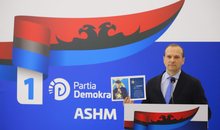
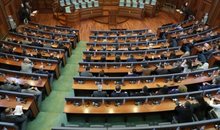
Kosovo in political deadlock, attempt to constitute Parliament fails again
2025-05-07 11:31:51
45-year-old man arrested in Tirana, raped his wife and children, then shot them
2025-05-07 11:19:12
Disappearance of Jan Prenga, hearing postponed for Dritan Rexhepi and others
2025-05-07 11:10:46
BIRN: Tourism investments in Durres spark accusations of electoral gains
2025-05-07 10:59:10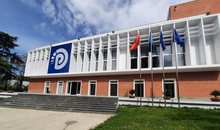




DP closes campaign on May 9, Berisha: We conclude a journey, we begin a mission
2025-05-07 10:02:03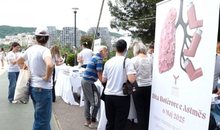
Doctors: 5% of children affected by asthma
2025-05-07 09:50:22
Document / Power of Attorney that "burys" Judge Irena Gjoka
2025-05-07 09:39:32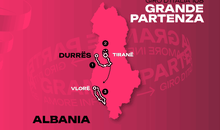
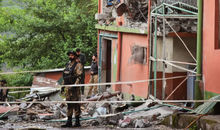
India attacks Pakistan with missiles, Trump reacts: It's a shame
2025-05-07 09:20:53
